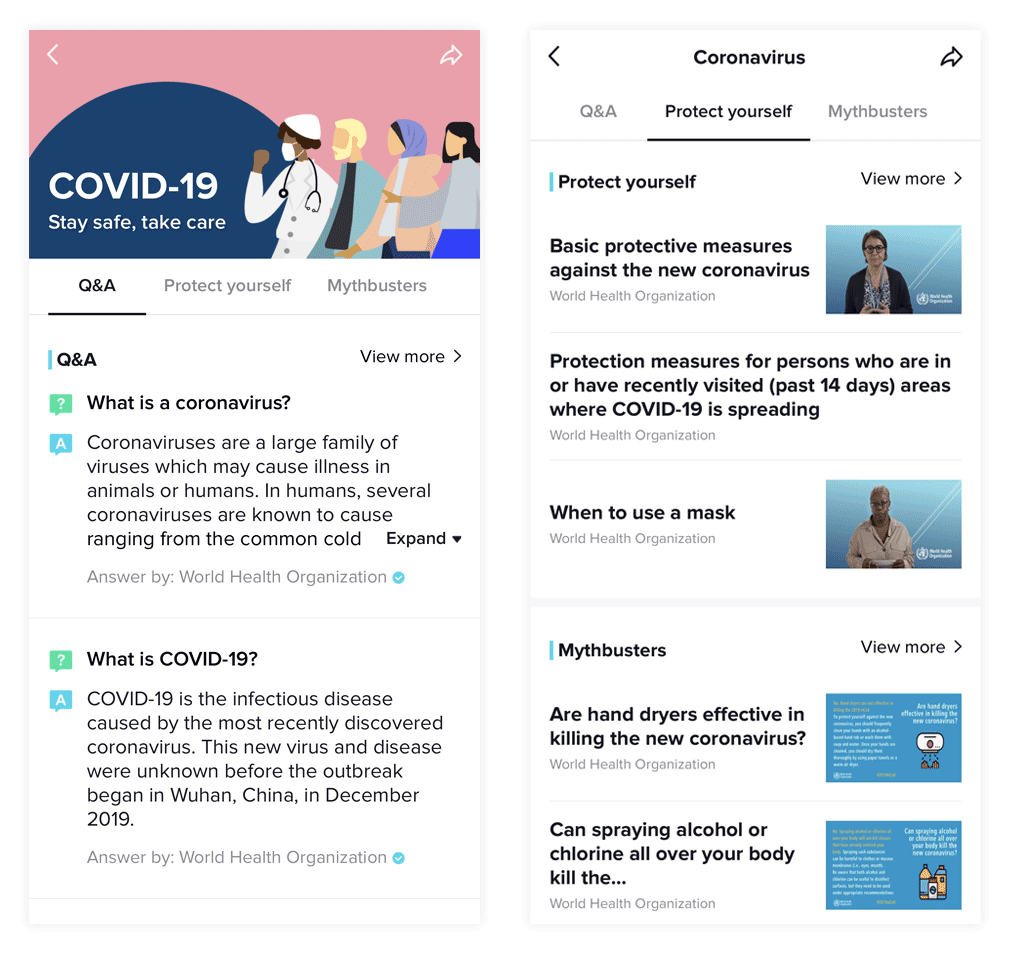This week, Google Ads was the latest to swiftly address advertisers who may be trying to drive sales by preying on users’ fears amid the pandemic.
Their Inappropriate Content policy has been updated, disallowing content that:
“…potentially capitalizes on or lacks reasonable sensitivity towards a natural disaster, conflict, death, public health emergency, or other tragic event.”
The list of examples of what qualifies as this behavior includes:
- Price gouging.
- Selling supplies in high demand but weak in quantity.
- Sensitive keywords to manipulate click-through rate.
To help advertisers evaluate previous strategies which may not work now, and give examples of words to be careful of, Google Ads also added a help page specifically to address these concerns.
They also pledged to offer $340 million in ad credits last week.
As of yesterday, Axios reports a memo from Google’s Head of Industry was released that will reverse the “no coronavirus” ad decree.
It will make exceptions for trusted entities, such as hospitals, medical providers, and other organizations attempting to disseminate relevant information.
Search Platforms Adapt to Coronavirus Selling Environment
Google Ads’ recently policy update is the latest in the attempt to curb advertisers attempting to exploit selling during a socially sensitive time.
They previously started enforcing the banning of ads that were selling face masks in March, following Facebook’s policy of the same thing.
Other platforms have worked quickly as the situation evolves, including Microsoft Advertising.
A Microsoft spokesperson noted:
Microsoft Advertising has taken precautionary measures to block ads for delivery related directly to COVID-19 under the Microsoft Advertising Sensitive advertising policy. This precaution also applies to some COVID-19 related medical supplies. We will only allow Public Service Announcements from trusted sources, such as official Govt. agencies, to promote COVID-19 content.
These policy change is the latest in sweeping efforts made by search and social advertising platforms to cut off advertisers who might try to profit from pandemic fears and shortages.
In addition, many platforms have launched COVID-related informational hubs to help support paid media advertisers through the uncertainty.
Facebook Ads & Twitter Continue to Evolve COVID-19 Resources for Advertisers
Facebook Ads and Instagram Ads started banning the sale of masks in March.
They updated this policy to include hand sanitizer, surface disinfecting wipes, and COVID-19 testing for children.
Facebook has also launched a COVID-19 resource center for advertisers.
It includes resources such as their “Marketing for Uncertain Times” deck released last month, playbooks by industry, and general advice on how to stay informed.
Twitter Revising Former Stances as Quickly as This Morning
Twitter had also banned all promoted content referring to the pandemic, with exceptions for Public Service Announcements that come from trusted, approved third parties.
As of this morning, this decision has been reversed, and brands are allowed to include references to Coronavirus.

They are also automatically rejecting any ads that contain keywords relating to the virus.
Like Facebook, they have launched their own resource on crisis communication to help guide brands.
Pinterest & TikTok Partner with Trusted Health Organizations
Pinterest also started redirecting searches on-platform to go to official content by trusted government sources such as the WHO, avoiding results that could contain anything not easily monitored.
TikTok has also created a coronavirus-specific effort to prevent the spread of misinformation.
Part of that effort includes in-feed ad space being donated to trusted notable organizations such as the WHO and Red Cross.

As it relates specifically to advertisers and the ad content that’s allowed:
“Our ads policy does not allow ads that reference coronavirus, including when promoting products or services, to create a sense of fear, or to cause widespread offense.”
YouTube Also Makes Exceptions for Trusted Sources
YouTube had originally not allowed monetization on Coronavirus content, citing their “sensitive topic guidelines.”
That decision has since been reversed to a degree.
They stress they will still remove content that violates its policies, or spread misinformation.
Ad space is available on a limited number of channels for trusted people and organizations.


